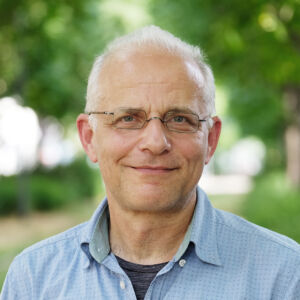Accelerating market uptake of heat pump systems: Challenges, visions and steps for change - results from a stakeholder process in four European countries. Peer-reviewed conference paper
Immanuel Stieß, Thomas Friedrich
The EU project TRI-HP is investigating the social acceptance and requirements of innovative trigeneration systems in order to make renewable energy technology for residential buildings user-friendly and effective.
Trigeneration systems are systems that combine heat, cooling and electricity generation from multiple predominantly renewable energy sources in order to be used, for example, in apartment buildings. While the majority of the project partners are involved in the development of this innovative technology, the ISOE team's task is to explore the perspectives of the stakeholders who will eventually use or deal with this technology. Taking into account current findings in the social sciences, this ensures that specific needs of end-users and stakeholders are taken into account.
Despite a steadily growing share of renewable energy supply within the European Union, further efforts are urgently needed to achieve the Paris Agreement Goals. Most greenhouse gas emissions are released by the energy sector, which therefore also offers the greatest savings potential. The TRI-HP project can contribute to CO2 savings as it is an alternative to the use of fossil fuels in the residential sector. Home owners, for whom TRI-HP is also an attractive 3-in-1 solution, can thus not only significantly improve their ecological balance, but are at the same time able to save electricity and heating costs.
However, as we know from social science and technology research, the implementation of technical innovations into social contexts is a complex process in which various stakeholders are involved, such as investors, decision-makers, architects, homeowners or installers. One of the tasks of the ISOE team will therefore be to take this complexity into account in order to be able to identify possible barriers, hindrances and incentives - a process which will involve the direct dialogue with stakeholders.
Based on the current state of research on social acceptance, innovation, and risk perception, the needs, expectations, and concerns of various affected stakeholders are systematically identified, explicitly including gender aspects. To this end, qualitative data are collected in several European countries with different geographical, climatic, political and cultural conditions. Data will be collected in semi-structured expert interviews, stakeholder workshops and focus group discussions. Finally, data analysis will then enable the researchers to draft recommendations for action.
The project “TRI-HP – Trigeneration systems based on heat pumps with natural refrigerants and multiple renewable sources” is funded by the European Union within the framework of the research and innovation programme “Horizon 2020”.
Immanuel Stieß, Thomas Friedrich
Thomas Friedrich, Immanuel Stieß
Thomas Friedrich, Immanuel Stieß
Thomas Friedrich, Immanuel Stieß
How much do we really need for a good life? Which services and infrastructures enable a sufficient standard of living, consumption, or nutrition?
Go to Topic Page

